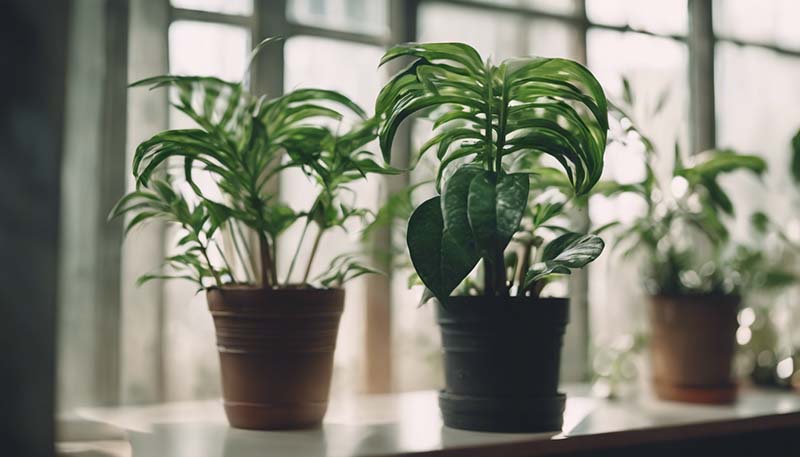Title: The Best Indoor Plants for Air Purification
Introduction:
- Briefly introduce the concept of air purification and its importance for indoor spaces.
- Mention how indoor plants can be an effective and natural way to improve air quality.
Section 1: Understanding Indoor Air Pollution
- Explain the sources of indoor air pollution (e.g., household chemicals, off-gassing from furniture, etc.).
- Discuss the potential health risks associated with poor indoor air quality.
Section 2: The Science Behind Air-Purifying Plants
- Explain the process of photosynthesis and how it contributes to air purification.
- Discuss the role of plants in removing toxins and pollutants from the air.
Section 3: Top 10 Best Indoor Plants for Air Purification
Advertisement
1. Spider Plant (Chlorophytum comosum)
- Describe the appearance and care requirements of the plant.
- Explain its air-purifying capabilities and the toxins it can remove.
2. Peace Lily (Spathiphyllum)
- Provide details on the plant\'s appearance and care needs.
- Discuss its ability to remove pollutants like formaldehyde and benzene.
3. Snake Plant (Sansevieria)
- Describe the plant\'s appearance and care requirements.
- Explain its ability to remove toxins like formaldehyde, benzene, and xylene.
4. Areca Palm (Dypsis lutescens)
- Discuss the plant\'s appearance and care needs.
- Explain its effectiveness in removing pollutants like formaldehyde and xylene.
5. Rubber Plant (Ficus elastica)
- Describe the plant\'s appearance and care requirements.
- Discuss its ability to remove pollutants like formaldehyde and toluene.
6. Boston Fern (Nephrolepis exaltata)
- Provide details on the plant\'s appearance and care needs.
- Explain its effectiveness in removing pollutants like formaldehyde and xylene.
7. Aloe Vera
- Describe the plant\'s appearance and care requirements.
- Discuss its ability to remove pollutants like benzene and formaldehyde.
8. English Ivy (Hedera helix)
- Provide details on the plant\'s appearance and care needs.
- Explain its effectiveness in removing pollutants like formaldehyde and benzene.

9. Dracaena
- Describe the plant\'s appearance and care requirements.
- Discuss its ability to remove pollutants like formaldehyde and xylene.
10. ZZ Plant (Zamioculcas zamiifolia)
- Provide details on the plant\'s appearance and care needs.
- Explain its effectiveness in removing pollutants like formaldehyde and benzene.
Section 4: Tips for Choosing and Caring for Air-Purifying Plants
- Offer advice on selecting the right plants for specific indoor environments (e.g., low-light conditions, high humidity, etc.).
- Discuss proper care techniques, such as watering, fertilizing, and pruning, to ensure the health and effectiveness of air-purifying plants.
Section 5: Additional Benefits of Indoor Plants
- Discuss the psychological benefits of having indoor plants, such as stress reduction and improved mood.
- Mention the aesthetic value of indoor plants and how they can enhance the appearance of a living or working space.
Conclusion:
- Summarize the importance of air purification and the role of indoor plants in improving air quality.
- Encourage readers to incorporate air-purifying plants into their living spaces for a healthier and more enjoyable environment.
Comment